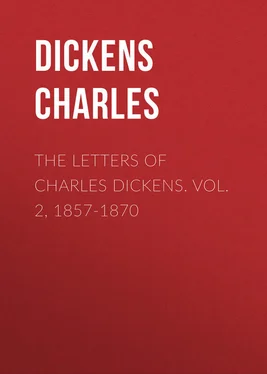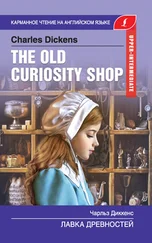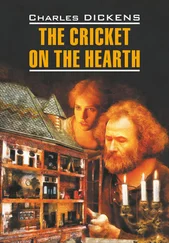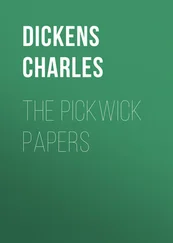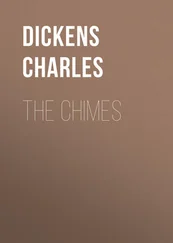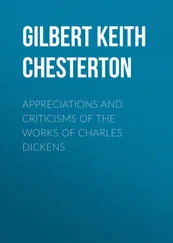Чарльз Диккенс - The Letters of Charles Dickens. Vol. 2, 1857-1870
Здесь есть возможность читать онлайн «Чарльз Диккенс - The Letters of Charles Dickens. Vol. 2, 1857-1870» — ознакомительный отрывок электронной книги совершенно бесплатно, а после прочтения отрывка купить полную версию. В некоторых случаях можно слушать аудио, скачать через торрент в формате fb2 и присутствует краткое содержание. Жанр: foreign_antique, foreign_prose, на английском языке. Описание произведения, (предисловие) а так же отзывы посетителей доступны на портале библиотеки ЛибКат.
- Название:The Letters of Charles Dickens. Vol. 2, 1857-1870
- Автор:
- Жанр:
- Год:неизвестен
- ISBN:нет данных
- Рейтинг книги:3 / 5. Голосов: 1
-
Избранное:Добавить в избранное
- Отзывы:
-
Ваша оценка:
- 60
- 1
- 2
- 3
- 4
- 5
The Letters of Charles Dickens. Vol. 2, 1857-1870: краткое содержание, описание и аннотация
Предлагаем к чтению аннотацию, описание, краткое содержание или предисловие (зависит от того, что написал сам автор книги «The Letters of Charles Dickens. Vol. 2, 1857-1870»). Если вы не нашли необходимую информацию о книге — напишите в комментариях, мы постараемся отыскать её.
The Letters of Charles Dickens. Vol. 2, 1857-1870 — читать онлайн ознакомительный отрывок
Ниже представлен текст книги, разбитый по страницам. Система сохранения места последней прочитанной страницы, позволяет с удобством читать онлайн бесплатно книгу «The Letters of Charles Dickens. Vol. 2, 1857-1870», без необходимости каждый раз заново искать на чём Вы остановились. Поставьте закладку, и сможете в любой момент перейти на страницу, на которой закончили чтение.
Интервал:
Закладка:
Mr. Procter contributed to the early numbers of "All the Year Round" some very spirited "Songs of the Trades." We give notes from Charles Dickens to the veteran poet, both in the last year, and in this year, expressing his strong approval of them.
The letter and two notes to Mr. (afterwards Sir Antonio) Panizzi, for which we are indebted to Mr. Louis Fagan, one of Sir A. Panizzi's executors, show the warm sympathy and interest which he always felt for the cause of Italian liberty, and for the sufferings of the State prisoners who at this time took refuge in England.
We give a little note to the dear friend and companion of Charles Dickens's daughters, "Lotty" White, because it is a pretty specimen of his writing, and because the young girl, who is playfully "commanded" to get well and strong, died early in July of this year. She was, at the time this note was written, first attacked with the illness which was fatal to all her sisters. Mamie and Kate Dickens went from Gad's Hill to Bonchurch to pay a last visit to their friend, and he writes to his eldest daughter there. Also we give notes of loving sympathy and condolence to the bereaved father and mother.
In the course of this summer Charles Dickens was not well, and went for a week to his old favourite, Broadstairs – where Mr. Wilkie Collins and his brother, Mr. Charles Allston Collins, were staying – for sea-air and change, preparatory to another reading tour, in England only. His letter from Peterborough to Mr. Frank Stone, giving him an account of a reading at Manchester (Mr. Stone's native town), was one of the last ever addressed to that affectionate friend, who died very suddenly, to the great grief of Charles Dickens, in November. The letter to Mr. Thomas Longman, which closes this year, was one of introduction to that gentleman of young Marcus Stone, then just beginning his career as an artist, and to whom the premature death of his father made it doubly desirable that he should have powerful helping hands.
Charles Dickens refers, in a letter to Mrs. Watson, to his portrait by Mr. Frith, which was finished at the end of 1858. It was painted for Mr. Forster, and is now in the "Forster Collection" at South Kensington Museum.
The Christmas number of this year, again written by several hands as well as his own, was "The Haunted House." In November, his story of "A Tale of Two Cities" was finished in "All the Year Round," and in December was published, complete, with dedication to Lord John Russell.
My dear Arthur,
Will you first read the enclosed letters, having previously welcomed, with all possible cordiality, the bearer, Mr. Thomas C. Evans, from New York?
You having read them, let me explain that Mr. Fields is a highly respectable and influential man, one of the heads of the most classical and most respected publishing house in America; that Mr. Richard Grant White is a man of high reputation; and that Felton is the Greek Professor in their Cambridge University, perhaps the most distinguished scholar in the States.
The address to myself, referred to in one of the letters, being on its way, it is quite clear that I must give some decided and definite answer to the American proposal. Now, will you carefully discuss it with Mr. Evans before I enter on it at all? Then, will you dine here with him on Sunday – which I will propose to him – and arrange to meet at half-past four for an hour's discussion?
The points are these:
First. I have a very grave question within myself whether I could go to America at all.
Secondly. If I did go, I could not possibly go before the autumn.
Thirdly. If I did go, how long must I stay?
Fourthly. If the stay were a short one, could you go?
Fifthly. What is his project? What could I make? What occurs to you upon his proposal?
I have told him that the business arrangements of the readings have been from the first so entirely in your hands, that I enter upon nothing connected with them without previous reference to you.
Ever faithfully.My dear Cerjat,
I received your always welcome annual with even more interest than usual this year, being (in common with my two girls and their aunt) much excited and pleased by your account of your daughter's engagement. Apart from the high sense I have of the affectionate confidence with which you tell me what lies so tenderly on your own heart, I have followed the little history with a lively sympathy and regard for her. I hope, with you, that it is full of promise, and that you will all be happy in it. The separation, even in the present condition of travel (and no man can say how much the discovery of a day may advance it), is nothing. And so God bless her and all of you, and may the rosy summer bring her all the fulness of joy that we all wish her.
To pass from the altar to Townshend (which is a long way), let me report him severely treated by Bully, who rules him with a paw of iron; and complaining, moreover, of indigestion. He drives here every Sunday, but at all other times is mostly shut up in his beautiful house, where I occasionally go and dine with him tête-à-tête , and where we always talk of you and drink to you. That is a rule with us from which we never depart. He is "seeing a volume of poems through the press;" rather an expensive amusement. He has not been out at night (except to this house) save last Friday, when he went to hear me read "The Poor Traveller," "Mrs. Gamp," and "The Trial" from "Pickwick." He came into my room at St. Martin's Hall, and I fortified him with weak brandy-and-water. You will be glad to hear that the said readings are a greater furore than they ever have been, and that every night on which they now take place – once a week – hundreds go away, unable to get in, though the hall holds thirteen hundred people. I dine with – to-day, by-the-bye, along with his agent; concerning whom I observe him to be always divided between an unbounded confidence and a little latent suspicion. He always tells me that he is a gem of the first water; oh yes, the best of business men! and then says that he did not quite like his conduct respecting that farm-tenant and those hay-ricks.
There is a general impression here, among the best-informed, that war in Italy, to begin with, is inevitable, and will break out before April. I know a gentleman at Genoa (Swiss by birth), deeply in with the authorities at Turin, who is already sending children home.
In England we are quiet enough. There is a world of talk, as you know, about Reform bills; but I don't believe there is any general strong feeling on the subject. According to my perceptions, it is undeniable that the public has fallen into a state of indifference about public affairs, mainly referable, as I think, to the people who administer them – and there I mean the people of all parties – which is a very bad sign of the times. The general mind seems weary of debates and honourable members, and to have taken laissez-aller for its motto.
My affairs domestic (which I know are not without their interest for you) flow peacefully. My eldest daughter is a capital housekeeper, heads the table gracefully, delegates certain appropriate duties to her sister and her aunt, and they are all three devotedly attached. Charley, my eldest boy, remains in Barings' house. Your present correspondent is more popular than he ever has been. I rather think that the readings in the country have opened up a new public who were outside before; but however that may be, his books have a wider range than they ever had, and his public welcomes are prodigious. Said correspondent is at present overwhelmed with proposals to go and read in America. Will never go, unless a small fortune be first paid down in money on this side of the Atlantic. Stated the figure of such payment, between ourselves, only yesterday. Expects to hear no more of it, and assuredly will never go for less. You don't say, my dear Cerjat, when you are coming to England! Somehow I feel that this marriage ought to bring you over, though I don't know why. You shall have a bed here and a bed at Gad's Hill, and we will go and see strange sights together. When I was in Ireland, I ordered the brightest jaunting-car that ever was seen. It has just this minute arrived per steamer from Belfast. Say you are coming, and you shall be the first man turned over by it; somebody must be (for my daughter Mary drives anything that can be harnessed, and I know of no English horse that would understand a jaunting-car coming down a Kentish hill), and you shall be that somebody if you will. They turned the basket-phaeton over, last summer, in a bye-road – Mary and the other two – and had to get it up again; which they did, and came home as if nothing had happened. They send their loves to Mrs. Cerjat, and to you, and to all, and particularly to the dear fiancée . So do I, with all my heart, and am ever your attached and affectionate friend.
Читать дальшеИнтервал:
Закладка:
Похожие книги на «The Letters of Charles Dickens. Vol. 2, 1857-1870»
Представляем Вашему вниманию похожие книги на «The Letters of Charles Dickens. Vol. 2, 1857-1870» списком для выбора. Мы отобрали схожую по названию и смыслу литературу в надежде предоставить читателям больше вариантов отыскать новые, интересные, ещё непрочитанные произведения.
Обсуждение, отзывы о книге «The Letters of Charles Dickens. Vol. 2, 1857-1870» и просто собственные мнения читателей. Оставьте ваши комментарии, напишите, что Вы думаете о произведении, его смысле или главных героях. Укажите что конкретно понравилось, а что нет, и почему Вы так считаете.
